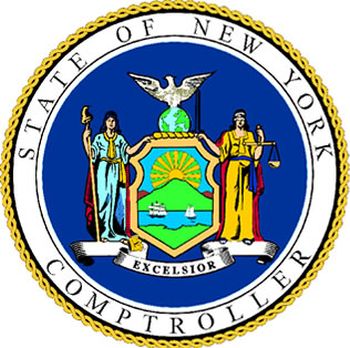Financial literacy should be taught in all New York schools. When students take a financial literacy course, they learn personal finance, budgeting, and investing. They become better equipped and informed to make important financial decisions in the future that could impact their long-term financial success and quality of life.
There is no question that investing in financial literacy will pay dividends for our young people later in life.
Recently, the state Education Department’s Blue Ribbon Commission on Graduation Measures recommended to the Board of Regents that financial literacy should be a graduation requirement.
As part of the process to examine New York’s graduation measures, the commission surveyed hundreds of New Yorkers, asking: “What knowledge, skills, and/or experiences do you think are important for all students to have by the end of high school?” One of the most frequent responses was, “Financial literacy: loans, managing money, living within one’s means, saving for retirement …”
Financial literacy clearly has the attention of the public and a required course in our high schools is being given serious consideration by the state Education Department. The department also is examining ways to integrate financial literacy across academic disciplines throughout a student’s academic career. Students should learn age-appropriate topics about money; its value; how to save, invest and spend; and how to budget as the number of financial decisions increase and as more students decide to go to college and incur student loan debt.
Just as teens are required to take a driver’s education course before getting behind the wheel of a vehicle, we have a responsibility to empower students with the skills to effectively manage their finances before applying for a credit card, student loan or mortgage. It is time for New York to catch up to states who for decades have taught a financial literacy course and required it for high school graduation.
In Utah, where the 2008 class was the first required to take a financial education course, the benefits have been measured. According to a program review in 2018 by the state’s auditor, Utah high school graduates have greater financial knowledge and better financial behaviors. Further, the state auditor found the course’s standards provided “vital life skills that apply to all students regardless of gender, race, or socioeconomic status.”
Experts and researchers have also seen positive outcomes of financial literacy education in Georgia, Idaho, and Texas, with those states reporting relatively higher credit scores and lower relative delinquency rates for students who took a course compared to those who did not.
In New York, only 20 high schools offer a stand-alone, semesterlong personal finance course that may be a requirement to graduate, according to nonprofit Next Gen Personal Finance.
Akron High School in upstate New York for example, began offering personal finance in 2016, and the course became a requirement for graduation in 2018. Students graduate knowing important topics like compound interest, debt, credit scores, how to start saving, and most importantly, how to be ready for a financial emergency.
Young adults are increasingly facing higher levels of debt whether from student loans or credit cards, and many from lower-income households fall victim to predatory lending, scams, and high-interest loans. Preventing these common financial pitfalls starts with financial literacy education in all our schools.
Financial literacy can be a great equalizer for students, and New York cannot afford to wait. It is in the state’s economic and social interests to offer personal finance in our schools now.
.
Thomas DiNapoli
New York State Comptroller
.

















